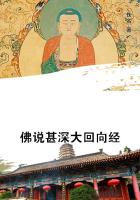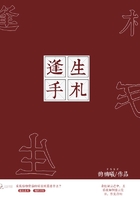"To Fraulein Wenckebach as a teacher, I owe more than to any other teacher I ever had. I cannot remember that she reproved any student or that she ever directly urged us to do our best. She made no efforts to make her lectures attractive by witticisms, anecdotes, or entertaining illustrations. Yet her students worked with eager faithfulness, and I, personally, have never been so absorbed and inspired by any lectures as by hers. The secret of her power was not merely that she was master of the art of teaching and knew how to arouse interest and awaken the mind to independent thought and inquiry, but that her own earnestness and high purpose touched our lives and made anything less than the highest possible degree of effort and attainment seem not worth while."--"We girls used to say to each other that if we ever taught we should want to be to our students what she was to us, and if they could feel as we felt toward her and her work we should want no more. She demanded the best of us, without demanding, and what she gave us was beyond measure.--It was courses like hers that made us feel that college work was the best part of college life."
These are the things that teachers care most to hear, and in the nineteen years of her service at Wellesley, there were many students eager to tell her what she had been to them. She writes in 1886:
"What a privilege to pour into the receptive mind of young American girls the fullness of all that is precious about the German spirit; and how enthusiastically they receive all I can give them!"
In the late eighties and early nineties there came to the college a notable group of younger women, destined to play an important part in Wellesley's life and to increase her academic reputation:
Mary Whiton Calkins, Margarethe Muller, Adeline B. Hawes, the able head of the Department of Latin, Katharine M. Edwards, of the Department of Greek, Sophie de Chantal Hart, of the Department of English Composition, Vida D. Scudder, Margaret Sherwood, and Sophie Jewett, of the Department of English Literature. In the autumn of 1909, Sophie Jewett died, and never has the college been stirred to more intimate and personal grief. So many poets, so many scholars, are not lovable; but this scholar-poet quickened every heart to love her. To live in her house, to sit at her table, to listen to her "cadenced voice" in the classrooms, were privileges which those who shared them will never forget. Her colleague, Professor Scudder, speaking at the memorial service in the College Chapel, said:
"We shall long rejoice to dwell on the ministry of love that was hers to exercise in so rare a measure, through her unerring and reverent discernment of all finest aspects of beauty; on her sensitive allegiance to truth; on the fine reticence of her imaginative passion; on that heavenly sympathy and selflessness of hers, a selflessness so deep that it bore no trace of effort or resolute purpose, but was simply the natural instinct of the soul....
"Let us give thanks, then, for all her noble and delicate powers; for her all-controlling Christianity; for her subtle rectitude of intellectual and spiritual vision; for her swift ardor for all high causes and great dreams; for that unbounded tenderness toward youth, that firm and steady standard of scholarship, that central hunger for truth, which gave high quality to her teaching, and which during twenty years have been at the service of Wellesley College and of the Department of English Literature."
This very giving of herself to the claims of the college hampered, to a certain extent, her poetic creativeness; the volumes that she has left are as few as they are precious, every one "a pearl."
Speaking of these poems, Miss Scudder says: "And in her own verse,--do we not catch to a strange degree, hushed echoes of heavenly music? These lyrics are not wholly of the earth: they vibrate subtly with what I can only call the sense of the Eternal.
How beautiful, how consoling, that her last book should have been that translation, such as only one who was at once true poet and true scholar could have made, of the sweetest medieval elegy 'The Pearl'!" And Miss Bates, in her preface to the posthumous volume of "Folk-Ballads of Southern Europe", illumines for us the scholarship which went into these close and sympathetic translations:
"For the Roumanian ballads, although she pored over the originals, she had to depend, in the main, upon French translation, which was usually available, too, for the Gascon and Breton. Italian, which she knew well, guided her through obscure dialects of Italy and Sicily, but Castilian, Portuguese, and Catalan she puzzled out for herself with such natural insight that the experts to whom these translations have been submitted found hardly a word to change. 'After all,' as she herself wrote, 'ballads are ****** things, and require, as a rule, but a limited vocabulary, though a peculiarly idiomatic one.'"
Not the least poetic of her books, although it is written in prose, is the delicate interpretation of St. Francis, written for children and called "God's Troubadour."
"Erect, serene, she came and went On her high task of beauty bent.
For us who knew, nor can forget, The echoes of her laughter yet Make sudden music in the halls."
["In Memoriam: Sophie Jewett." A poem by Margaret Sherwood, Wellesley College News, May 1, 1913.]















